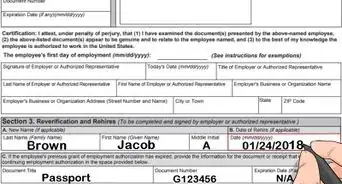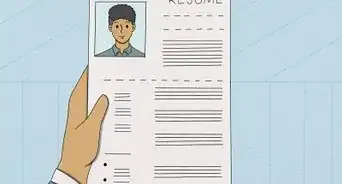This article was written by Jennifer Mueller, JD. Jennifer Mueller is an in-house legal expert at wikiHow. Jennifer reviews, fact-checks, and evaluates wikiHow's legal content to ensure thoroughness and accuracy. She received her JD from Indiana University Maurer School of Law in 2006.
There are 10 references cited in this article, which can be found at the bottom of the page.
This article has been viewed 40,186 times.
The U.S. Department of Labor (DOL) administers or enforces more than 100 federal laws designed to ensure you have a safe and fair workplace. Two of these laws in particular, the Fair Labor Standards Act (FLSA) and the Family and Medical Leave Act (FMLA), are enforced directly by the DOL through its Wages and Hours Division. If you believe your employer has violated one of these laws, such as by refusing to grant your medical leave or not paying you overtime, and you can't resolve the situation on your own, you may want to file a complaint with the DOL.[1]
Steps
Lodging an Internal Complaint
-
1Speak to someone in person. If you haven't already, reach out to a manager or someone in human resources and see if you can resolve the problem. It may have simply been an oversight that can be easily corrected.[2]
- If you're not sure with whom you need to speak, ask a manager or supervisor you think might know. For example, you might say to your shift supervisor "I think there's a problem with my last paycheck. Who should I talk to about that?"
- Don't go into detail about the issue with anyone until you know you're speaking with someone who has the power to do something about it. You want to keep workplace gossip to a minimum.
- When you get with someone who does have power or control over the problem, stay positive, polite, and professional. Give them the benefit of the doubt – even if you strongly suspect otherwise – and the opportunity to resolve the problem.
- Before you have this conversation, you may need to do a little research so you can verify your rights under the law. Then you can assert yourself with authority.
- For example, you might say "I know that you're supposed to pay me time and a half for any hours over 40 I work in a week. Last week I worked 42 hours, but the two extra hours I was only paid my regular rate. Can you explain what happened there?"
-
2Document all communication. Even though at this point you want to treat the situation as though it's a simple misunderstanding, it's still important to get everything in writing so you'll have a record if you file a complaint with the DOL later.[3]
- The easiest way to do this is with an email or handwritten note to the person with whom you originally spoke. Keep your tone friendly and collegial, conveying the attitude that you're just checking in and confirming that the mistake was corrected.
- For example, you might write: "Hi Mary! Thanks for speaking with me yesterday about my hours. I understand there was some problem with the time clocks functioning correctly, but that you were going to make sure I got that two hours of overtime pay I was owed. I appreciate your help, and let me know if there's anything else you need from me."
- If you're sending a note rather than an email, make a copy of it for your own records before you give it to the person.
- Continuing the conversation in writing also ensures that you're keeping the lines of communication open rather than simply assuming the issue will be resolved and then escalating the situation later.
Advertisement -
3Send a formal complaint letter. If you're unable to get anywhere by talking to people directly, sending a strongly-worded formal complaint letter may spur someone higher up into taking action to resolve your problem.[4]
- The person to whom you need to address this letter may be listed in your employee handbook. If not, find out who is in charge of human resources or payroll in your company and address the letter to them.
- Type your letter using a standard business-letter template. You can find a template on any word processing app.
- Stick to the facts, and maintain a firm, professional tone. Avoid making accusations or attacking anyone personally.
- Describe any conversations you had with managers or supervisors, mentioning them by name and job title.
- Provide a deadline for the person to get back to you, and let them know that if the matter isn't resolved in a timely fashion, you'll have to pursue other options. If you plan to file a complaint with the DOL or a state agency, you can state this – but make sure you follow through if the issue isn't addressed to your satisfaction.
- Close your letter by stating what you'd like to see happen, and thank the person for their prompt attention and efforts to resolve the matter.
-
4Comply with any internal investigation. After reviewing your letter, a manager or supervisor may decide to look more closely at the issues you've raised. Being cooperative and providing the information they need can help them uncover the truth.[5] [6]
- If your employer agrees to look into the situation, keep in close contact with whoever is in charge of the investigation. Ask who you can contact for status updates and to make sure something is being done.
- Maintain confidentiality and be cautious of who you talk to about your problems. While it's understandable that you might be upset and need to vent, try not to rant about the problem to co-workers. Gossip won't help, and may hurt, your situation.
- Keep in mind that federal law prohibits your employer from penalizing you in any way for making a complaint. If your hours are cut or you suffer other negative consequences that you believe are related to your complaint, talk to someone about it immediately.
- Be aware of the passage of time while all of this is going on. You have a limited period of time to file a complaint with the DOL after the incident has occurred. If you feel that your employer is merely delaying so that you would miss the deadline to file a complaint, you may want to go ahead and move forward.
Notifying the DOL
-
1Confirm your employer is covered under federal law. The DOL enforces federal laws dealing with wages and hours through its Wages and Hours Division (WHD). Most, but not all, employers are subject to these laws.[7] [8]
- Federal laws apply generally to all companies engaged in interstate commerce, as well as those that employee more than a set minimum number of people. The minimum number of employees required varies depending on the law.
- You can visit the DOL's website and use the tools and calculators there to determine if your employer is covered by federal law, or you can call 1-866-4USWAGE and ask.
- Operators are available on the toll-free help line Monday through Friday from 8:00 a.m. to 8:00 p.m. Eastern time.
- You also may want to visit a DOL local office in person. Check the map on the DOL's website to see if this would be a more convenient option for you.
- Keep in mind that even if your employer isn't covered by federal law, there may be a state law that applies. Many state labor laws have essentially the same requirements as the federal law but apply to all employers within the state. Some states have even more stringent protection for workers than what is provided under federal law.
-
2Organize the information you'll need to provide. Since you begin the DOL complaint process by speaking to someone on the phone, it's best to have the answers to the questions they'll ask handy so you don't have to make several phone calls to complete your complaint.
- You must have your own name, address, and phone number, as well as the name, address, and phone number of your employer.
- The DOL will want to know the name of the specific owner or manager to whom they should speak regarding your complaint, as well as basic information about the type of company where you work, the job you do, and how much and how often you're paid.
- You also should gather any documentation or other information you think might assist the DOL in processing your complaint, such as pay stubs, copies of emails or letters related to the issue, and a copy of your employee handbook if you have one available.
-
3File your complaint. When you're ready, begin the complaint process by calling the WHD at 1-866-4USWAGE. You also have the option of completing a complaint online. Your information will be forwarded to the nearest local office for evaluation.[9]
- Keep in mind that complaints regarding wages and hours must be filed with the DOL within two years of the date the incident or discrepancy occurred.
- Typically you want to get the process going as soon as possible after you discover the problem, if you are unable to resolve it internally.
- Complaints to the WHD are always kept confidential. Even if the agency decides to investigate your complaint, your name won't be mentioned when they contact your employer.
-
4Follow up on your complaint. Once your complaint is evaluated, you may be contacted by a WHD agent for more information, or they may initiate an investigation with your employer. Keep in contact with the agent assigned to your complaint and check regularly for status updates.[10]
- The WHD agent may want to review the documents you've gathered or any evidence you have of the problem, including your pay stubs or communication you had with your supervisors or managers regarding the particular issue.
- If the WHD finds that you were unfairly denied wages or overtime compensation in violation of federal law, it may supervise payment of that money to you.
- The WHD also may seek penalties against your employer for violation of the law, up to and including the filing of criminal charges in some cases.
- The DOL also may file a civil lawsuit on your behalf. Even if it doesn't, you always have the right to file a private lawsuit.
- Although you don't have to wait to see if the DOL intends to file a lawsuit before you go forward with one of your own, it may be in your best interests financially to wait for the results of the DOL's investigation before moving forward.
Taking Further Action
-
1Consult with an attorney. If the DOL is unable to help you or resolve the problem to your satisfaction, or if the same issue continues to occur, you may want to have an experienced employment attorney on your side to help you take your case to the next level.[11] [12]
- A good place to start looking for an attorney is the website of your state or local bar association. These websites typically have a searchable directory of attorneys licensed to practice in your area.
- Look for an attorney who has experience litigating federal employment lawsuits based on situations similar to yours.
- For example, if your DOL complaint was based on the failure of your employer to pay you proper overtime, look for an employment law attorney who focuses on FLSA violations.
- Try to interview at least three attorneys before you hire someone, so you can compare and contrast them to find the best attorney for you.
- Keep in mind that many employment law attorneys work on contingency, meaning you won't have to pay any fees to them unless you win your case at trial or agree to a settlement.
- However, you also should understand that lawsuits can take months, if not years, to reach any sort of resolution – and no matter how good your attorney, you still may not get the result you want.
-
2File a federal lawsuit. Although there's no legal requirement that you go through a complaint process with the DOL before you file a lawsuit against your employer for violation of federal employment laws, it's generally better for you to exhaust all other options before engaging in litigation.[13]
- Both the FMLA and the FLSA allow you to file a private lawsuit against your employer and seek redress for violations.
- You also may be able to sue in state court. Your attorney will work with you to decide which court is the best for you to file your lawsuit.
- After gathering information from you about the violations, your attorney will prepare and file a complaint, which will be served on your employer. Your employer then has a limited period of time to file a response.
- Your employer's response may include a written answer or motion to dismiss. Your attorney will go over the next steps and work with you to plan a litigation strategy.
-
3Attempt mediation. After your employer receives a federal complaint, they may be much more willing to negotiate a mutually beneficial settlement with you than continue to fight a protracted and public lawsuit.[14]
- While you can evaluate any settlement offer and negotiate an agreement privately, mediation may bring a better result for you.
- Through mediation, a neutral third party facilitates negotiations between you and your employer with the goal of finding common ground and arriving at a compromise that satisfies you both.
- Mediation also has significant benefits to entice your employer. Primarily, everything discussed in mediation, including any settlement reached, is confidential.
- If you are able to reach a settlement through mediation, make sure the terms of that settlement are embodied in a written agreement that is signed by both you and your employer so it will be legally enforceable.
References
- ↑ https://www.dol.gov/general/aboutdol/majorlaws
- ↑ http://www.nolo.com/legal-encyclopedia/how-start-workplace-claim-against-30197.html
- ↑ http://www.nolo.com/legal-encyclopedia/how-start-workplace-claim-against-30197.html
- ↑ http://www.nolo.com/legal-encyclopedia/how-start-workplace-claim-against-30197.html
- ↑ http://www.nolo.com/legal-encyclopedia/how-start-workplace-claim-against-30197.html
- ↑ https://www.dol.gov/whd/regs/compliance/whdfs77a.htm
- ↑ http://www.dol.gov/whd/regs/compliance/whdfs44.htm
- ↑ http://www.legalmatch.com/law-library/article/state-vs-federal-laws-for-employment-disputes.html
- ↑ http://www.dol.gov/whd/flsa/WHD1498HowToFileAComplaint.pdf
- ↑ http://www.dol.gov/whd/regs/compliance/whdfs44.htm
- ↑ http://www.employmentlawfirms.com/resources/employment/family-medical-leave/how-fmla-is-enforced
- ↑ http://www.nolo.com/legal-encyclopedia/do-you-have-fmla-claim-against-your-employer.html
- ↑ http://www.wawd.uscourts.gov/sites/wawd/files/ProSeManual4_8_2013wforms.pdf
- ↑ https://www.justice.gov/sites/default/files/olp/docs/pa-mid.pdf

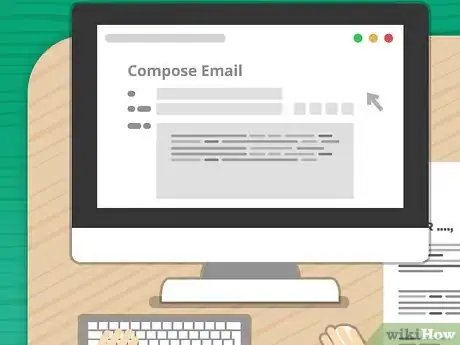
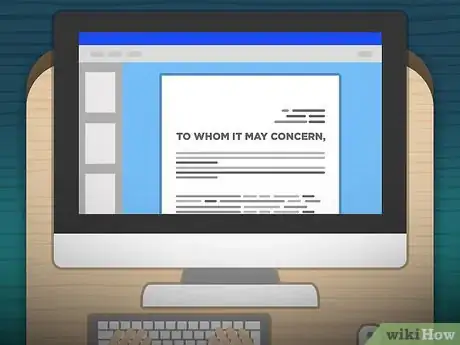

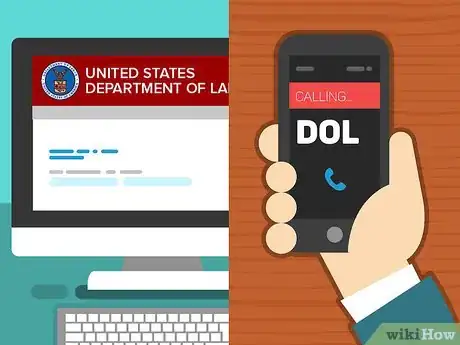
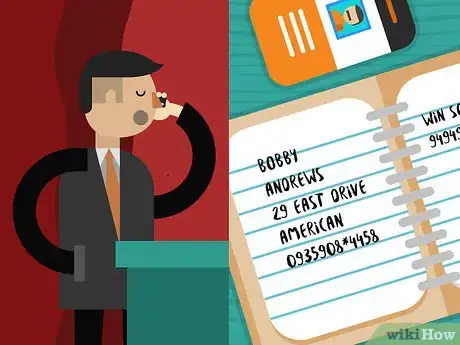
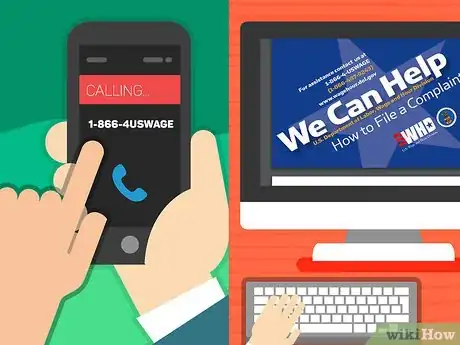

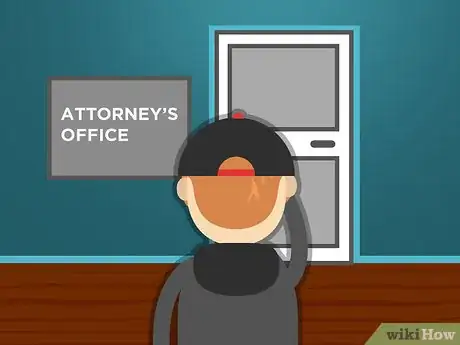
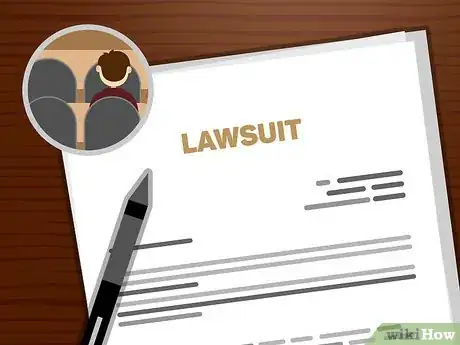











-Status-Step-6.webp)
